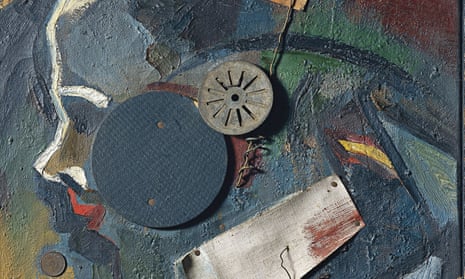Fish
He wrote the things decades back
He did them underwater
He pulled them out like sonic fish,
Dada hake, Bauhaus trout, Schwitters skate,
Showed them to Ormond who shook his head.
You’ve energy, Finch, but
they’ll not put that on your grave.
Flailing in the Welsh fog.
This man punctuates using the chance methods
of John Cage. Potato’s Potatoe’s Potatos.
There are monkeys and there are typewriters
and the two shouldn’t be allowed to mix.
Your leaflet advertising your amateur magazine
is a joke, is it not?
Beer mats, they read better, boy.
Bwthyn, Llanbradach, Cariad, Hiraeth, Pysgodyn.
Finch has never used words like those.
Vous êtes une nation poétique sans concours, dit Chopin,
piling on the micro-particles sans son sea
sip seeeeth yat rat ata ata ata ata aaaah
tick tick tick ttt tttt tttt tteeee. Chopin, this is
an incorrect claim. Wales is a nation of
standard-stoppages
engaging with pasteurised modernism
forty years outside the frame.
I sound now like Kingsley Amis,
it’s come to this at last.
Asked him once to send in a poem.
Got a postcard back, reading
Mr Amis regrets but he
cannot do as you ask.
Vous êtes une nation poétique sans concours - You are a poetic nation without competition
Fish is from a new collection, The Machineries of Joy, by the Cardiff-based writer and performer Peter Finch. Its title reminded me irresistibly of one of Finch’s earlier poems, Going on TV, in which the speaker is asked by a taxi driver about his topic. “Poetry, I say / I pronounce it poultry so as not to sound too arty.” Perhaps there are other fishy allusions in the current title which, flailing in my English fog, I’ve missed, but still, the notion of the poet’s name being got wrong by an earnestly admiring biographer, and producing new species of piscine modernism, is appealing, even if ultimately off the point.
The nonchalant, almost dismissive tone of the introduction might signal a voice close to the poet’s own. Self-denigration, mock-self-denigration, pride in the denigrators getting things maddeningly or hilariously wrong, interplay slyly throughout. From the pleasantly bizarre, defiantly “arty” self-mockery of the fish-list, we shift to responses by “Ormond” to the artist as a young radical. The comments are both jolly and barbed. They wouldn’t be funny if the reader (and the late John Ormond) didn’t know that Finch had gone on to prove his worth, and enjoy, if not the last laugh, a cheerfully long-lasting one – in publications and readings spanning from the late 1960s to the present. We know this, and the subject of the comments knows it, of course. Poets with time-diluted memories of their own rejection slips may be best placed to appreciate it all.
The old joke about the greengrocer’s apostrophe in line 10 is refreshed by the daft comparison to John Cage. Monkeys and typewriters are less original, and suggest critical impatience. I found the first and last of the haul of insults the funniest: “You’ve energy, Finch, but / they’ll not put that on your grave” and “Beer mats, they read better, boy”. The first is witty: the last has a joshing, genial tone some of the others lack. If we read the poem autobiographically, the so-called “amateur magazine” was the seminal Second Aeon.
The Welsh language provides the critical hook in next stanza, centred on a list of the kinds of words “Finch has never used” – an interesting mixture. While in the print collection, as here, the French has a footnoted English translation, there’s no help offered with the Welsh: a bilingual readership is assumed. The words and their rough, or possibly downright wrong, translations are Bwthyn – a small cottage or shelter; Llanbradach – the village that’s known in English as The Brad; Cariad – love, beloved; Hiraeth – longing; Pysgodyn – fish (noun, singular). A fish had to be there, of course. Other words (such as “cariad”) suggest an in-joke: they might have been picked out to expose some ignorant dabbler in Cymraeg asserting dubious authenticity.
Finch the sonic dismantler emerges in the next section, fielding the Frenchman’s romantic compliment, “piling on the micro-particles” and morphing through homonyms to an explosion of percussive sound effects. The vocal recovery brings sharpened clarity: “Chopin, this is / an incorrect claim. Wales is a nation of / standard-stoppages / engaging with pasteurised modernism / forty years outside the frame.” Is the speaker including himself in the criticism?
“I sound now like Kingsley Amis,” he remarks of the above passage, “it’s come to this at last.” These lines are clearly not informed by any Movement technique or ideology (the claim/frame rhyme notwithstanding): the tone of disapproval, calling out a “pasteurised modernism / forty years outside the frame”, implies an avant garde position. That bone-stuck-in-throat term, “standard-stoppages”, alluding to Marcel Duchamp’s “experiments to imprison and preserve forms”, may be the vital clue. And, of course, moaning about lost “standards” is a popular sport for almost any establishment. Even anarchists do it.
The final anecdote is a nice one. Finch’s touch is light: the speaker isn’t on the attack, and the terse, Miss Otis-like dignity of the Amis response is wholly unobjectionable. All the outlived poets in Fish seem at least respected by the speaker: some, such as Chopin and Ormond, are honoured.
Peter Finch continues to make iconoclastic works that sparkle and spit, notwithstanding some now long-established experimental forms. His new collection is a painfully joyful achievement – not only in its command of various genres, including concrete poetry and the sombre-comic anecdote, but also in the ability to unite his variety of singing fish in the net of a single poem.
Some links to enjoy: Peter Finch on Real Cardiff and performing The Way It Grows.

Comments (…)
Sign in or create your Guardian account to join the discussion